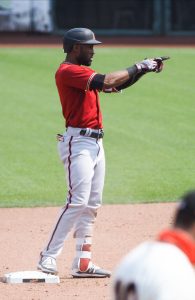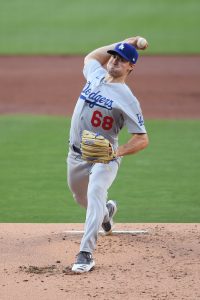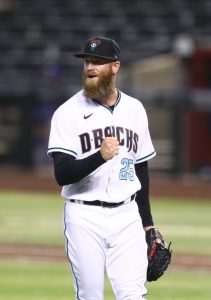Some notes on prominent injury situations around the American League:
- Twins’ manager Rocco Baldelli provided encouraging updates on a trio of injured players, via Do-Hyoung Park of MLB.com (Twitter links). Star third baseman Josh Donaldson and center fielder Byron Buxton are seemingly nearing their returns, with each scheduled to play in an intrasquad game at the team’s alternate training site this afternoon. Right-hander Cody Stashak is evidently a bit further behind, but he’s lining up for a bullpen session soon, Park reports. If all goes well, he could be back on the active roster shortly thereafter.
- Blue Jays’ closer Ken Giles will throw a live batting practice session tomorrow, reports Ben Nicholson-Smith of Sportsnet (Twitter link). An impending free agent, Giles has been limited to two appearances this season by a forearm strain. Fellow right-handed reliever Jordan Romano, who looked on his way to breaking through as one of the game’s top strikeout artists before going down with a strained finger, has not yet progressed to throwing, Nicholson-Smith adds. The Toronto organization hopes he’ll be able to return this year, though.
- Royals’ reliever Ian Kennedy is headed to the 10-day injured list with a left calf strain, the club announced. He’ll have an MRI tomorrow, reports Jeffrey Flanagan of MLB.com (Twitter link). So continues a nightmarish season for the 35-year-old, who has allowed 17 runs (14 earned) in 14 innings. 2020 is the final year of Kennedy’s five-year, $70MM contract.
- The Red Sox are sending reliever Darwinzon Hernández to the 10-day injured list with a sprained AC joint, via Alex Speier of the Boston Globe (Twitter link). The hard-throwing southpaw missed the first three weeks of the season after testing positive for COVID-19, limiting him to three appearances. They’ve been more of the same for Hernández, who continues to rack up otherworldly strikeout totals while issuing an alarming number of walks.
- Rougned Odor is headed to the Rangers’ 10-day injured list with an eye infection, per Evan Grant of the Dallas Morning News (Twitter link). In his stead, shortstop Elvis Andrus is returning from an IL stint of his own. The Rangers discussed an Odor deal with the Red Sox earlier today, but the underperforming second baseman will instead remain in Arlington.


 Hyun Jin Ryu
Hyun Jin Ryu